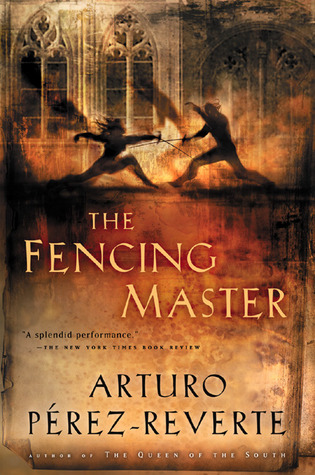There are many good writers active these days, certainly more than enough to keep you busy—if you can identify them. That’s not so easy to do, because the ones who are promoted (make that “expensively touted”) are usually (a euphemism for “almost always”) not the ones to spend time with. As a rule of thumb, I suggest that writers representing organized political constituencies or identity groups may be safely neglected without even cursory investigation, though the possibility of exception cannot be discounted entirely. You have to watch out, too, for writers who are excessively photogenic, for a glossy image is often the sign of an empty cranium or, worse, an empty book.
There’s a confusion here between image and reality, between money and politics, that’s often referred to as “the publishing industry,” which exists in parallel to “the fashion industry,” “the film industry,” “the music business,” “politics,” “culture,” and so on. That’s a roundabout way of saying that popular success need be neither popular nor successful, in these days of turbo-capitalism. But that’s not saying that, in simpler days, popular success was not meaningful. Dumas and Dickens and Balzac still compete powerfully for our attention today, and for the same reasons that they competed successfully over a century and a half ago for the allegiance of readers who now fill many cemeteries.
Dead men don’t wear plaid, and they don’t read novels either, though I think they would like to. Modern people are, or at least have been, readers of novels, and so we have to read them while we have the chance. The international success of the Spaniard Arturo Pérez-Reverte should be no pretext for ignoring him, as, in these perverse days, it might seem to be. Pérez-Reverte’s rather shocking appeal is the ultimate in retro-hip: He is not only a storyteller but one who actually writes, as opposed to processing words. And not just that: He seems to be a conscious throwback to the 19th-century narrator, to an essentially romantic conception of the tale—one who invites comparison with such neo-Victorians as George MacDonald Fraser and A.S. Byatt, on the one hand, and Umberto Eco, on the other. Finally, Pérez-Reverte is his own man, and he should be compared to the writers he loves and who have influenced him: Dumas, Balzac, Collins, Conrad, John Buchan, the early Greene, and many another.
His fourth novel published in this country, The Fencing Master, perhaps gains in Margaret Jull Costa’s translation. for the tide exploits a verbal ambiguity that does not exist in the original, El maestro de esgrima. I mean that Don Jaime Astarloa, the protagonist, is both a master of fencing and a master who fences, as the word “fencing” equivocates between gerund and participle. However that may be. The Fencing Master is neither offensive nor defensive.
Pérez-Reverte has framed his novels around arcana, areas of expertise that are grounds for intrigue: hence, the melodrama of their unfolding, which is also deceptively serious. Special knowledge is a key to the past, and all of his books are dialectical engagements with the values of the past and with mystery in its serious sense. The Flanders Panel (1994) dealt with chess and art; The Dumas Club (1997) had to do with bibliophiles and necromancy; The Seville Communion (1998) took us through Catholic intrigue and computers. The Fencing Master teaches us a lot about that art and the honor that is its attendant value, as well as the political context of late 19th-century Spain.
The Fencing Master blends two stories in order to achieve its dialectical vision. Don Jaime likes to keep his distance from life—he lives for the art of which he is the master. Though the years have passed him by, he still hopes to find “the unstoppable thrust,” and he finds by the end that it will have to be improvised in action and not schematically conceived. Even at his age and removal from the ordinary world, he becomes the center of conspiracy, the object of violence, and the subject of seduction. Don Jaime surprises himself and the reader as he responds with everything that his austere code has taught him. Let’s say that this line of narrative is melodrama in the best 19th-century sense.
But it’s the other line, the social-historical context, that gives the novel its sense of dialectical engagement. The Madrid of 1868 is rife with political intrigue. Though the Don is reticent, he likes to hang out with his cronies at the Café Progreso, where the political speculation and gossip has a Dostoyevskian twist. The monarchist debates the radical as they swap cliches, and their dialogue exists in sync with real social conflict, foreshadowing the Spanish Civil War of the 1930’s. (And, by the way, I thought I detected among the received opinions of the left-liberal journalist Cárceles an echo of the progressive patriotism of Flaubert’s Monsieur Homais.)
Add to that Pérez-Reverte’s ironic style and sly humor, his immersion not only in Spain but in Europe, its geography, history, and culture, and you have sophisticated entertainment that is an instruction in disguise. Pérez-Reverte has sensibility, a sense of the past, a capacity for irony, and the patience for mystery. The Fencing Master, like Pérez-Reverte’s other books, demonstrates qualities that we would have to look a long way for in American fiction today. The cloak and dagger stuff masks a power of reflection that we might call Cervantean or even Jamesian, but which should perhaps be called Pérez-Revertean instead. This estimable author, unspoiled by his own success, has transformed himself from a journalist to a genuine writer, a man of vision. He won’t make Oprah Winfrey’s book list, which is only one reason he has made mine.
[The Fencing Master, by Arturo Pérez-Reverte (New York: Harcourt Brace) 244 pp., $24.00]

Leave a Reply